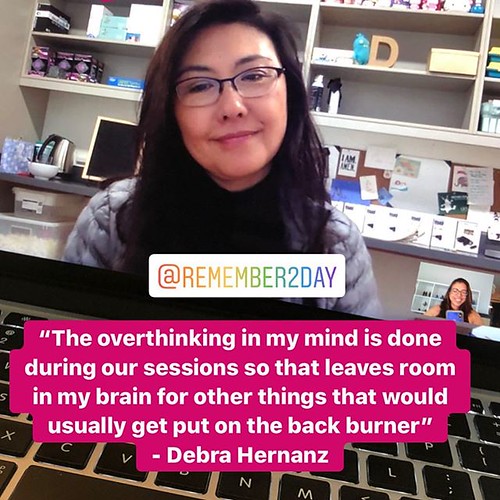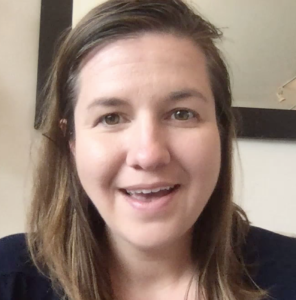In the past five years, I have been doing quite a lot of remote coaching: through our Eduro Learning, The Coach Microcredential as well as our Private Mentoring program. I meet with teachers, school leaders, and coaches every day for individual and team coaching sessions. I absolutely love (and am super grateful for) the opportunity to support educators around the globe! Not only does it keeps me feeling connected to learning in schools all over the world, but because the work is ongoing, it is an absolute honor to see each person’s growth and development over time.
When I look back on all these coaching experiences, it never felt like something unusual to me – especially because the people I coach are everywhere (from Germany, to Kuwait, to Korea, to the US, and beyond), remote coaching is the only way to support them. But, in the last few weeks, I’ve started seeing many questions in various groups and forums about what coaches can be doing during to support teachers during remote learning due to the coronavirus pandemic. Since I’ve been doing it for a while, I thought I’d share some of my top tips here.
Of course, none of these are unique to me. In fact I asked the coaches who have been part of our #coachbetter panel discussions about school closures to share their top tips for coaching during this difficult time, and they all shared ideas that are right in line with what I’ve been doing. Which then inspired me to create a 5 Min Fri video featuring all of these awesome educators, publishing this Friday (3 April), so if you want to see their examples in action, subscribe to our YT channel here!

Before I share all the tips, though, I do want to point out that although I have been coaching remotely for several years, what’s going on in the world right now is unprecedented. It’s not the same situation as when I started five years ago, or even five months ago. So, before jumping into some in-depth coaching work, please consider the excess stress and trauma that most people are feeling right now. One thing all coaches can do, regardless of circumstance, is be a human connection, personalized social support, a caring listener, and help educators focus on their overall wellbeing, mental health and ability to cope with the world right now.
Even if you have tons of ideas for what might be a great coaching opportunity for your colleagues, you might want to consider ways to collect data about what they need, want and can actually handle right now. For some teachers, just the thought of even having to have another virtual conversation might be putting them over the edge. Some of the examples below might be perfect in one school context, and might create feelings of anxiety in others. You know your colleagues best: ask about their needs, listen carefully, prioritize what you hear, and pace your support appropriately.
Ok, with that said, here they are:
6 Coaches And Their Top Tips for Remote Coaching
1. Inspire & Share

Even when we’re working face-to-face in a normal school setting, it can be hard to know what’s happening in other teachers’ classrooms. Now that we’re all working from home, unless there are specific structures in place to co-teach in a colleague’s virtual classroom, it’s even more unlikely that teachers will have an idea of what learning looks like on a day-to-day basis beyond their own subject area.
Jordan Benedict, at Shanghai American School, has been sharing Distance Learning Walks with the middle school teachers on the Pudong campus via YouTube for the last few weeks. He visits their virtual classrooms for specific key elements in remote teaching and then creates video walkthroughs for the whole division. Recently he’s done them on formative assessment, the use of videos and screencasts and feedback.
2. Be a Thought Partner

It’s just as easy to have a remote coaching conversation as it is to teach using Zoom or Hangouts or whatever tool your school has access to. This is what I do on a daily basis, working with educators from around the world. If you want to see a template for these kinds of conversations, check out our free digital download & customizable Google Docs template here.
Amy Garrett at Hong Kong International School has been personalizing the coaching experience for her teachers since school closed in January. Each teacher will need something a little different, and remote coaching makes it super easy to not only keep track of all of these conversations, but also to ensure the process is completely personalized to each teacher.
3. Keep Learning

As I mentioned in my previous post, the skills and tools that teachers need at the start of a remote teaching experience will evolve over time. At the beginning schools and teachers are overwhelmed with exactly how everything will work, and what tools to use. Those issues will be resolved rather quickly, because they have to be. Then it becomes about building community, staying connected, and creating experiences that go beyond a “short term” online learning experience.
As a coach, you can evolve with these needs by providing virtual PD through real-time conversations, screencasts, tutorials, newsletters, podcasts, or whatever works for your school community. Sandra Chow at Keystone Academy in Beijing has been doing an amazing job of connecting her teachers through virtual professional learning – and the parent community as well!
4. Curate Resources

If you’re not teaching your own classes, it’s likely that you’re doing a significant amount of “background work” to make virtual school successful and accessible for all of the teachers and students in your community. This means that you’re probably an expert on exactly what is possible with the tools your community is using. Being able to curate tips, tricks and strategies for making the most of this virtual environment is a huge help – as long as you are truly curating, not inundating (I think we’ve all seen the massive lists of tools swirling around Twitter).
Tim Bray at Cheongna Dalton School in Korea has been doing just that – making sure that his teachers have access to continued strategies to take learning deeper as they get more and more comfortable with the online learning platforms the school has adopted.
5. Create Experiences

As remote learning continues, it’s likely that students will miss out on important life experiences: sporting events, concerts, recitals, even field trips (and then, of course there are all the social events they will miss as well: dances, graduation, etc). As a coach, you’re likely more connected with what other schools are doing, and unique ways to create these kinds of experiences for (and with) students.
Pana Asavavatana at Taipei American School is working with the Early Years team to create a virtual field trip to the zoo with Kindergarten to re-create the trip they may miss if schools close again.
6. Give the Gift of Time

I’ve had a few of the coaches that I work with tell me that their teachers likely can’t handle any of the above. It’s just too much right now, and that’s ok. Is there a way you can support them by taking even just one thing off their plate? Can you give them a break in the middle of a day with no prep periods by working with their students for a section of class? Could you create content in their subject area for their students based on your previous work with this teacher? Can you edit a video announcement from your school leader, so all they have to do is record and you take the editing work for them?
This is an idea from me (so no video featuring another coach for this one), and I think it’s one concrete way you can demonstrate that you value and prioritize the self-care and mental wellbeing of your colleagues. Not everyone will deal with this crisis in the same way, and when we can support our colleagues in the way that’s most meaningful to them, we are truly coaching.
Final Thoughts
As coaches, we’re often in a very fortunate position not only to work with a wide variety of teachers, and therefore have a good pulse on the learning that’s happening, but also often to be privy to large scale conversations on how schools are handling these challenging times. This gives us a great opportunity to not only support our colleagues in the ways that are most relevant and useful to them, but also advocate for their needs with our school leadership team.
I have had more conversations than I can count with coaches, school leaders and teachers all around the world over the last 8 weeks about how different schools (and countries) are reacting to this global pandemic. Take the time to leverage those kinds of conversations to share a variety of perspectives within your school community. Many of the coaches I work with in the “West” were personally much more prepared for the coming crisis because they had the advantage of knowing what was happening in Asia. And now that schools are shut around the world, remember that Asia-based international schools still have 6 weeks of remote learning under their belt longer than almost any other city / country in the world. What we’re dealing with here is the future for those who have just started.
Spend some of your learning time as a coach to see what these schools are doing, and how the challenges (and opportunities) evolve over time. You might be able to see the future and help your school prepare for it!
And of course, if you have tips for how to coach during remote teaching, please share them! As always, this is just a start!
Feature Image Attribution: Across the Ice Bridge by Mitch Barrie, CC Licensed on Flickr
First posted on Kim’s personal blog
Kim Cofino
Share this post ...
We love sharing great content! Choose the best mailing list for you.
COACHES
RESOURCES
Coaching Resources
MICROCREDENTIALS
The Coach
TEACHERS
RESOURCES
All Resources
MICROCREDENTIALS
COETAIL
Connected Teacher
PARENTS
Balance Your Family’s Digital Lives (FREE Resource)
eBook (pre-order)
0 responses on "6 Ways Coaches Can Support Teachers During Remote Learning"